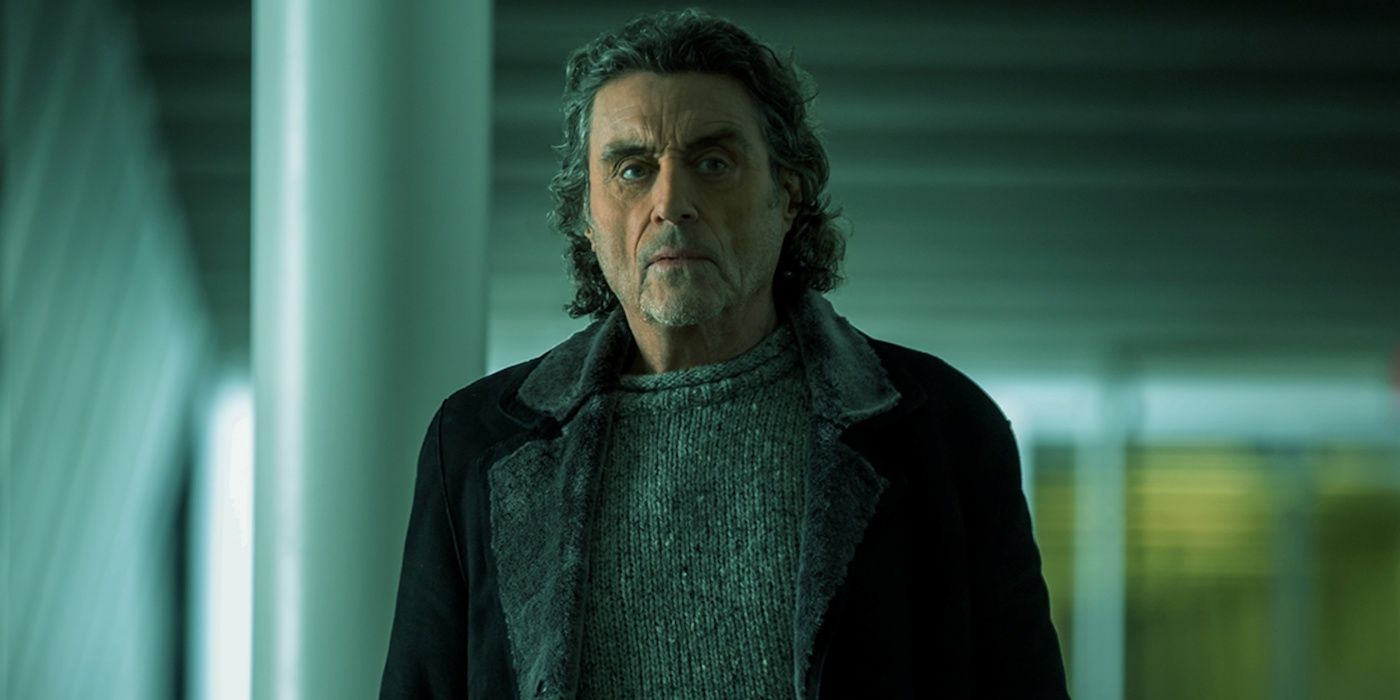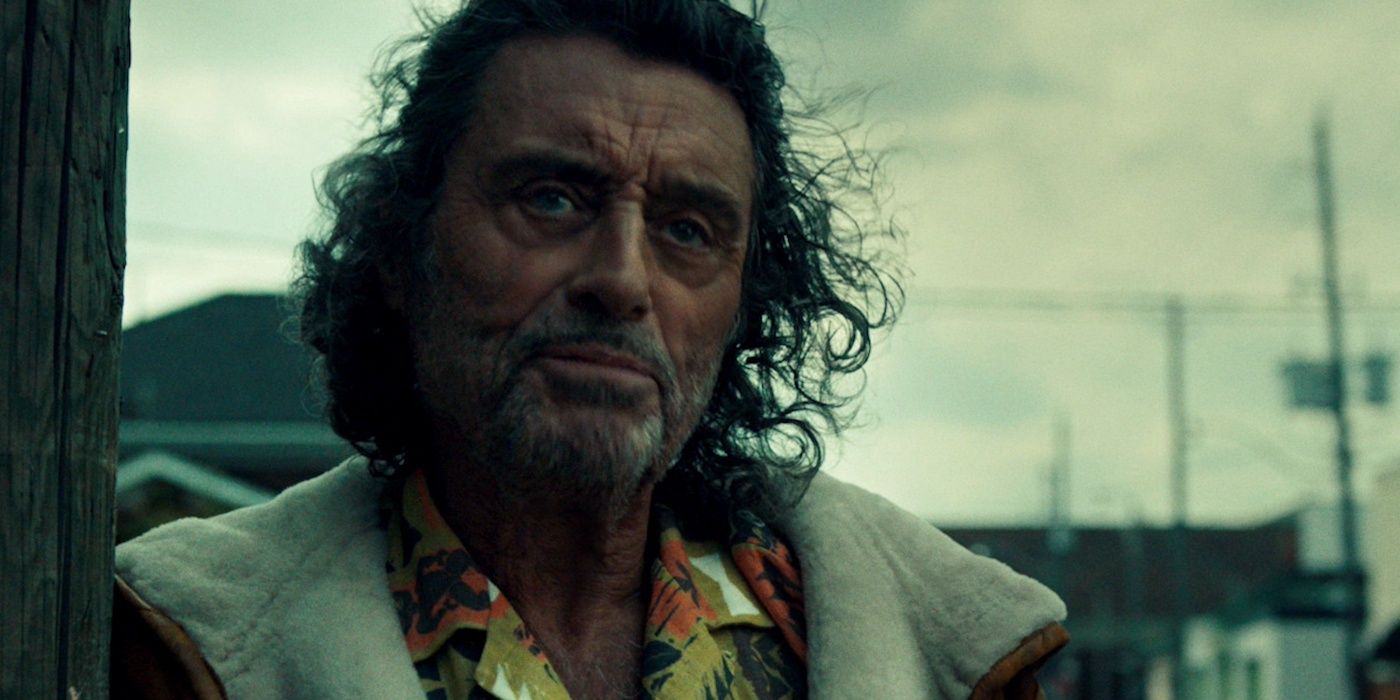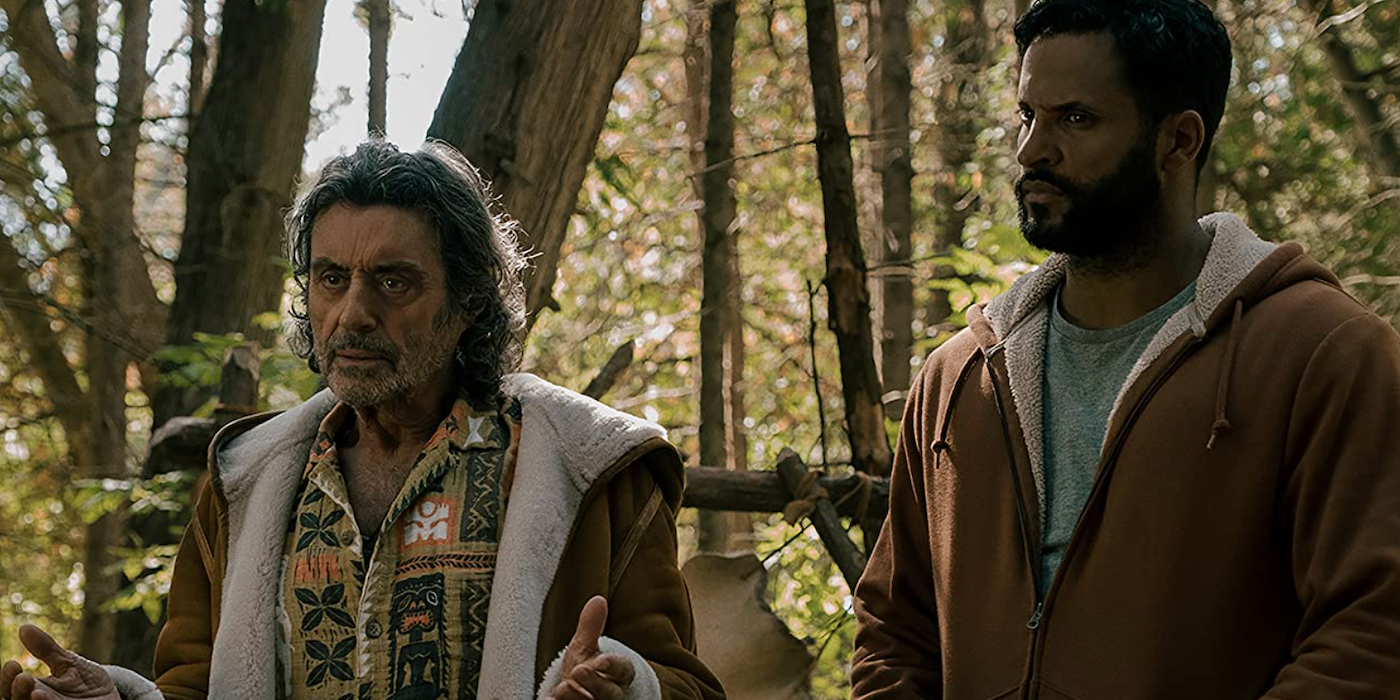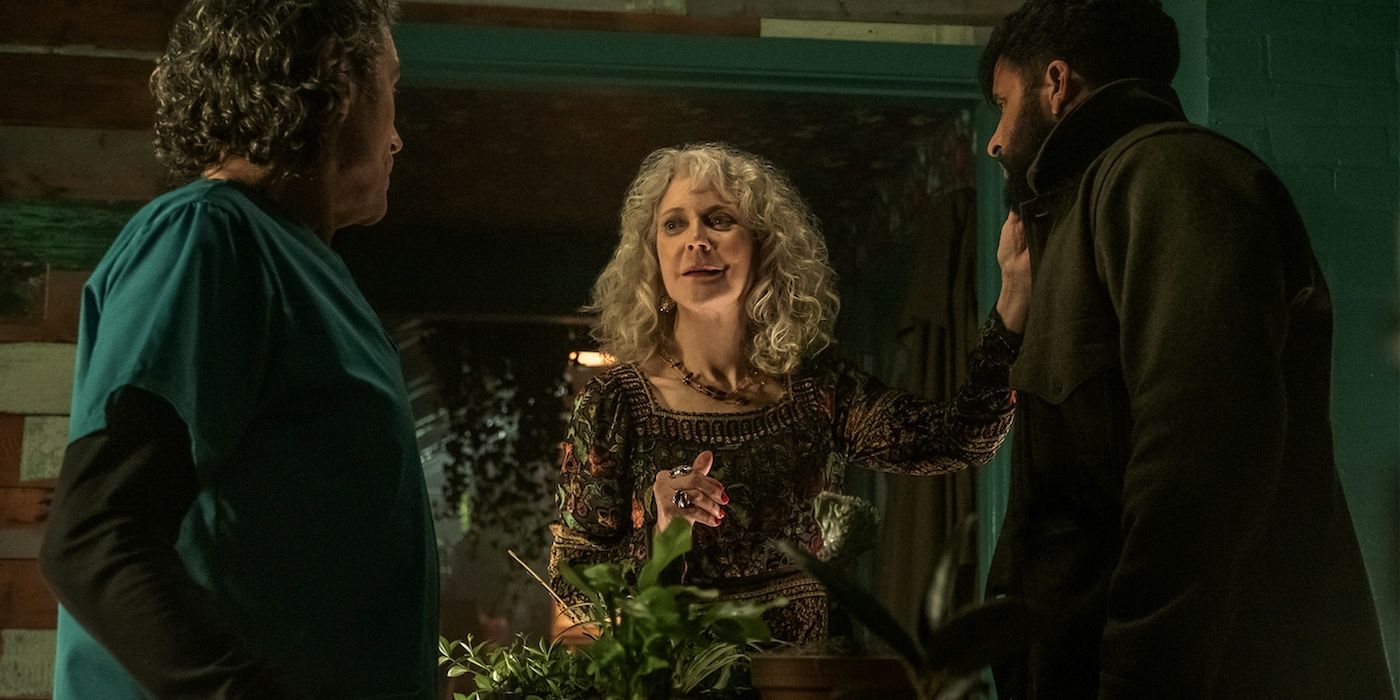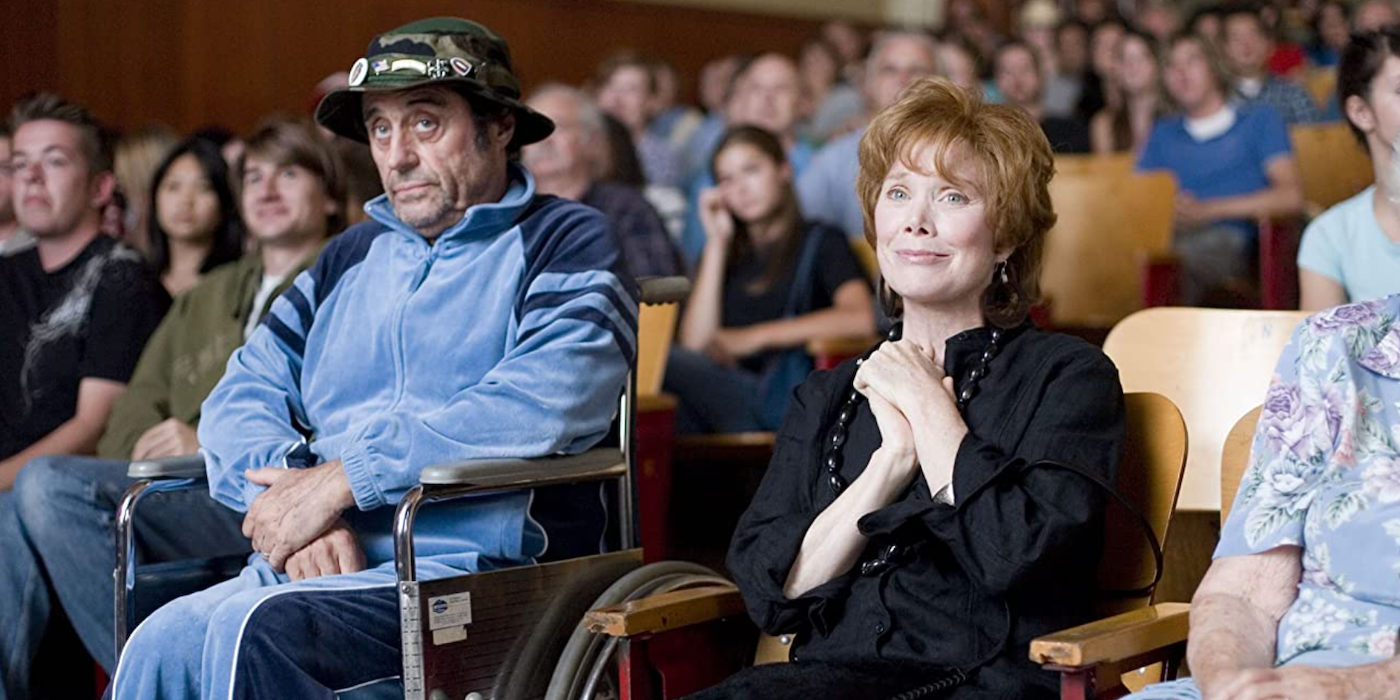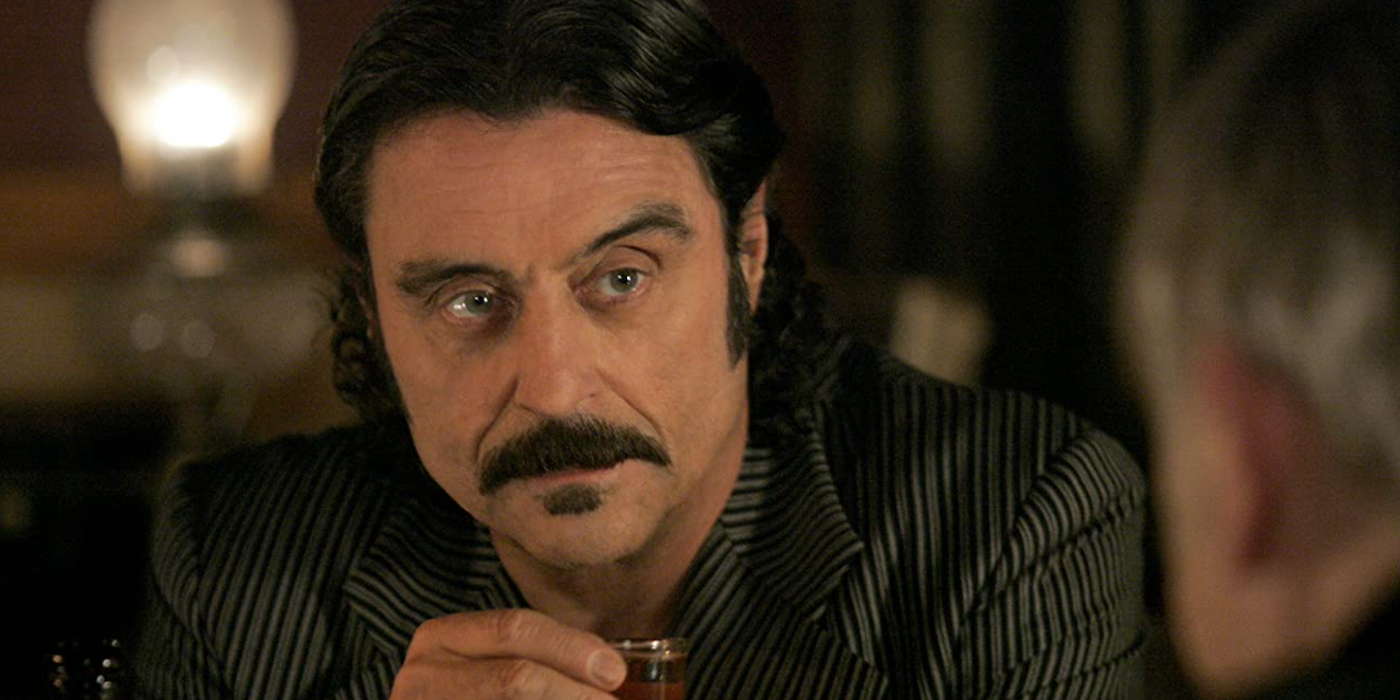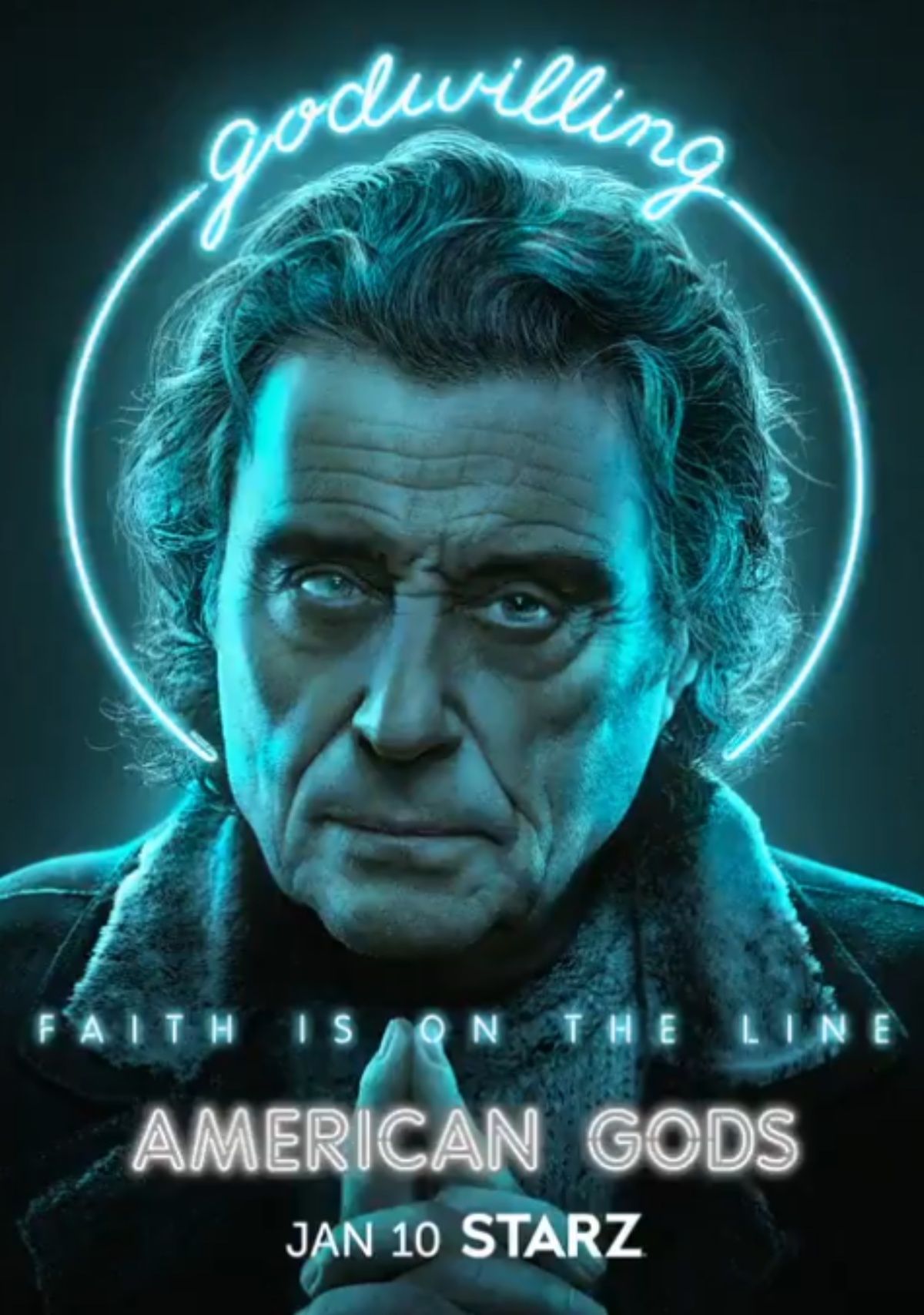Based on the best-selling and award-winning book by Neil Gaiman, the epic saga of the inevitable war building between the Old Gods of mythology and the New Gods of technology continues with Season 3 of the Starz series American Gods, as Shadow Moon (Ricky Whittle) comes to terms with the fact that Wednesday (Ian McShane) is not only the Norse god Odin, but that he’s also his father. Hiding out from his destiny in the snowy town of Lakeside, Wisconsin with the desire to forge his own path, Shadow soon learns that he can’t ignore or escape his ancestry.
During this 1-on-1 phone interview with Collider, McShane talked about being a part of a show like American Gods that’s different every year, the shifts that have come with each new showrunner, the complicated Wednesday-Shadow dynamic, and why he thinks it’s important for the show not to rely too heavily on special effects. He also talked about being a part of the John Wick franchise, his experience making Hot Rod, and why Deadwood was so special.
COLLIDER: This show has had a different feel to it with each season, especially as the characters travel around and the locations change. How are you feeling about Season 3?
IAN McSHANE: Even though [this book] was written 20 years ago, before any of this New God technology came in, it’s fascinating how it’s all been brought into the story. People talk about the show as if this was all in the book, but none of the technology was there. Some of it was, but not all of it. The last 20 years has been incredible. It’s been fascinating to see how you can include that in Neil’s vision of his apocalyptic version of this metaphysical life. I’ve loved it. I enjoy the book very much. I didn’t know the book before I got offered the gig, so it was a pleasure to read it and go, “Wow, this could be really interesting.” It’s been different every year, and I’m all for that. Who wants the same show every year. This isn’t network TV.
This show also changes and feels different, according to what’s going on in the world. Even if you thought of it one way before, because something else had been happening in the world at the time, it feels different as different things go on around us.
McSHANE: That’s interesting. The first year, it was 2016, so it was all of the build up to the next election in the States and the influence that had on the show because of the writing of Michael [Green] and Bryan [Fuller]. And then, they left the following year, for whatever, and I can’t go into that now because it’s too long ago and too complicated, but you want the show to be a bit better when you’re contracted to it. But without Bryan and Michael, you had something else going on. A lot of people complained about the way the show went into the ethnicity of the show, but I liked that. Orlando [Jones] was there, and he had some things to say. And that’s going to change again. This year, you’ve got Ricky’s character going to Lakeside, which is part of the book, and Wednesday bringing him back and being up to his usual tricks. This has been such a roller coaster ride with the show, there could be a fourth season and it could be anything, whatever they want to make it into because that’s what the book is. I remember my reaction to the book when I read it, thinking this could be phenomenal because, for a showrunner, there’s so many areas you can go into, for each character. It’s still evolving.
Have you had an adjustment period, each season, with the different showrunners and trying to figure out each new showrunner’s point of view, or has your process been the same?
McSHANE: Well, as a producer on the show, I have a bit of clout in saying where my character is going. I do think we had to get away from me and Ricky in a car. Even though it’s in the book and it’s very important, we had to get away from that to make Ricky more of a pro-active character on his own. It’s Shadow’s story and his journey, so we had to make him more pro-active, and I think we’ve done that by putting him in Lakeside, and then having Wednesday roaming the earth, as usual. We tried to establish that in the last episode of Season 2, by having Wednesday leave when it all went tits up, as we say, as they were closing in. You know that Wednesday is the hand behind the scenes, guiding the signs to whatever Shadow is doing while allowing Shadow the freedom of thinking that he’s his own man, and seeing him finally become his own man. We do actually partially finish the book, up to a point, in Season 3, which had to be done, in order to decide whether to stop now or to go on with something else.
What do you think it is that most frustrates Wednesday, when it comes to Shadow?
McSHANE: Wow. It comes now, when Shadow has found out that he’s his son. I wanted to get away from, and Ricky did too, of Shadow asking those awkward questions of, “Who am I?” You have it a little bit in Episode 1 of Season 3, but then you don’t have it anymore. We come more out of that. It was getting a little too much of that in Season 2 and we cast that away in Season 3. You have the questions in Episode 1, but then it’s definite that he’s his son and Wednesday goes away because he’s got things to do and Shadow goes to Lakeside. It all evolves from there.
We also get to see a little bit more of a human side of Wednesday, with getting to meet his former love, Demeter (Blythe Danner).
McSHANE: You’ve gotta have the backstory, yeah. You’ve also got the new aid, played by Ashley [Reyes], who’s great. You know she’s gonna turn out to have something special because she’s not been picked for just any reason. So, you’re gonna find something out about Cordelia because, even though she may not know it, Wednesday knows it. Wednesday is the driving character of the way things go, but Shadow also has his own story in Lakeside. I also love Emily’s character and they’ve managed to involve her in a good way. All she wants is to get her revenge on Wednesday. It’s tough because there are a lot of people on this show and sometimes it’s difficult to give everybody a fair shake. I miss The Jinn. I miss Mr. Nancy. Who knows? They may come back. You never know.
Along with your ongoing work in American Gods, you’ve also been a part of the John Wick film franchise. Have you heard anything yet about John Wick 4?
McSHANE: Keanu [Reeves] and I exchanged New Year’s greetings and said, "Hope to see you this year." I know the script is being written and they’re hoping to do it this year. I know they announced they were gonna do 4 and 5 together, but who knows. The studios announce all sorts of things. No doubt, at some point this year, we’re gonna do John Wick 4.
Are you surprised that that first film has turned into what it has and it’s now this franchise? Did you suspect that at all, when you signed on for it?
McSHANE: They got such a good cast for the first one and it was a very good script. I thought the second one wasn’t quite as good, but people by then loved it and went with it. I think the third one was really terrific, so it lived up to it. I always thought it had legs because of Keanu, a dead wife, a dog, a gun, and a great car. It had all of the elements, so how can you fail?
As someone who’s not typically known for comedy, how did you end up doing Hot Rod, and would you like to do more comedy?
McSHANE: You’ve probably seen me do comedy. Mr. Wednesday isn’t exactly the straightest role that I’ve ever done. Hot Rod was great. One of the nicest things is when people come up and say, “You know, I love that movie you did – Hot Rod.” It’s a nice change. I think it got lost in the shuffle when it came out. People thought, “Oh, it’s another one of those guys from SNL, making a comedy.” But the script was very good and the guy who directed it, Akiva [Schaffer], is very talented. It also has a great soundtrack. It’s got a cult following. I also did a series, that I produced and directed for years, called Lovejoy, which was really a comedy/drama on the BBC in the ‘90s, for years. Too many scenes of solitude make Jack a dull boy. Levity always helps anything, be it drama or whatever. If you try to find the humor in it, it will be even blacker.
You also did fantastic work on Deadwood. That was such a special show and it seemed at so many points, over the years, that the much talked about movie was just never going to happen. What was it like to actually finally get to do that movie and revisit that character?
McSHANE: When Deadwood happened, we had a meeting with me and David [Milch] and Tim [Olyphant] to start making the deals because they had a script and it all came together. I remember 2018 was a very full year. I did John Wick 3, and then we finished Season 2 of American Gods, and then I did Deadwood. It was like an out of body experience. We all went back, and it had been 12 years since we’d done it, but everybody came back exactly the same, we did our best, we finished it, and then it came out and I think they were a little dismissive of it, in terms of I thought they’d give something to David because I think it’s his crowning achievement. SAG and all of those other people were very churlish with their awards. So, I was a little sad that David didn’t get a little more because I did think the two-hour movie adaptation was pretty masterful, considering how most adaptations ended up disastrous. I thought they did a pretty good job on it.
In comparison to American Gods, which feels different every season, it was amazing how the Deadwood movie seemed to pick right back up where it left off, even though so much time had passed.
McSHANE: It was important to get that same feel. Even though they had a fire and the buildings are made of brick now, the people were still there, going through it. Life was tough. I love the fact that David wrote Al to show that he’d declined, over the years. He wasn’t the same. Neither was Tim. Tim was older. We all are. Thank god, they didn’t try to pick it up with everybody the same as they were before. The town was the same, but the people had all gotten older and a little bit more mature. It was a wonderful thing to do. The shoot was like, "Wow, we’re all here again. Here we are. Let’s do it." It was very special.
Does it feel very freeing to play a character like that, where you essentially can swear whenever you want, or a character like Wednesday, who can do whatever he wants to manipulate people? Is there something fun, as an actor, about playing characters like that?
McSHANE: Yeah, absolutely. Deadwood was David Milch’s creation of a world maturing. And then, law came in and changed society. If Deadwood had gone on, I think it would have been one of the greatest shows, ever. It would have shown America becoming, after yesterday I won’t say civilized, but showing how society changes. We did get the chance to do some of that. So, playing characters like that is very freeing. But then, David Milch is one of the greatest writers of all time on TV. Milch’s vision is so extraordinary. At the beginning, you thought Al was a villain, but then you realized there was a little more to it than that. He wasn’t just a black hat and black boots. That’s the way with all characters now. Up until the ‘70s and ‘80s, villains were villains. Not so much in European movies because they’ve always been much more interesting. In the 2000s, you had The Shield and Tony Soprano. You had the Golden Age of TV, if you like.
American Gods is interesting because it feels like all of the characters could do good or do bad, and it’s a struggle for all of them.
McSHANE: We don’t wanna step into the Marvel world. They mustn’t do too many magic tricks. You can have them. They have the special effects. The Gods can do things when they want to, but it takes too much energy out of them. It’s not just something that they can summon up, at any time. You’ve gotta have more of a mundane attitude towards it. I’m not into superhero movies, so it’s no good asking me about those. American Gods is something that I do. It’s a show. It’s metaphysical. It’s a story of ideas. I’m just not a comics guy. I have nothing against them. American Gods is much more a story of ideas than it is about action. You get action, but usually the action is a result of some other things. It’s not just a means to itself. I didn’t want it to become another show of just special effects.
American Gods airs on Sunday nights on Starz.

